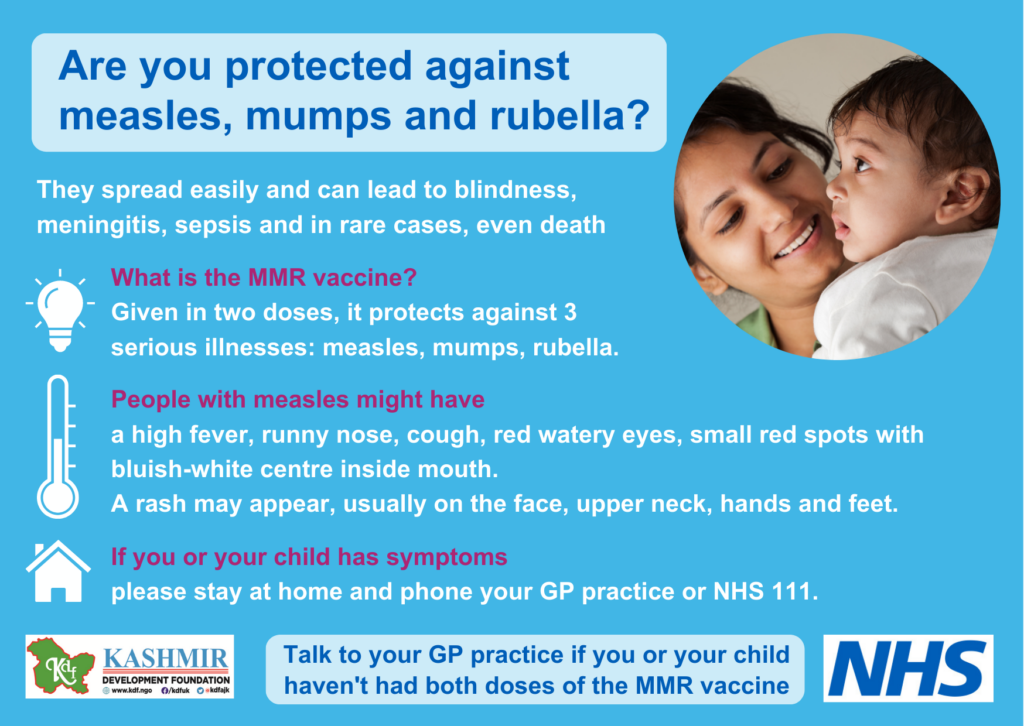- We have seen a recent increase of measles in the North West (latest data is here) and we do expect cases will increase due to some communities having low MMR vaccination rates.
- Measles is very infectious which means it can spread quickly among communities, such as schools and nurseries, if people are not up to date with their MMR vaccine.
- One in five children will need a hospital visit if they become unwell with measles and around one in15 measles cases can have complications such as meningitis, sepsis and blindness.
- The Measles, Mumps and Rubella (MMR) vaccine vaccination is the best protection against becoming seriously unwell.
- The MMR vaccine is free on the NHS, with the first dose being offered when a child is one year and the second at 3 years and 4 months old. It is available from your local GP surgery – there may also be some pop up clinics in your area.
The MMR vaccine is safe and has been used since the early 1980s.
The evidence is clear; there is no link between the MMR vaccine and autism
Two doses gives very effective and long lasting protection against measles, mumps and rubella.
There are two types of MMR vaccine, and one does not contain pork gelatine. You can request a vaccine without pork gelatine from your GP practice when you book your appointment.
If you are unsure if your child / children are up to date with their vaccines check their red book (Child’s health record).
If your child / children have missed any of their MMR vaccines, contact their GP surgery to book an appointment.
Measles does not just affect young children – anyone who has missed their MMR vaccination can catch measles and become ill.
Measles – NHS (www.nhs.uk)
MMR (measles, mumps and rubella) vaccine – NHS (www.nhs.uk)

